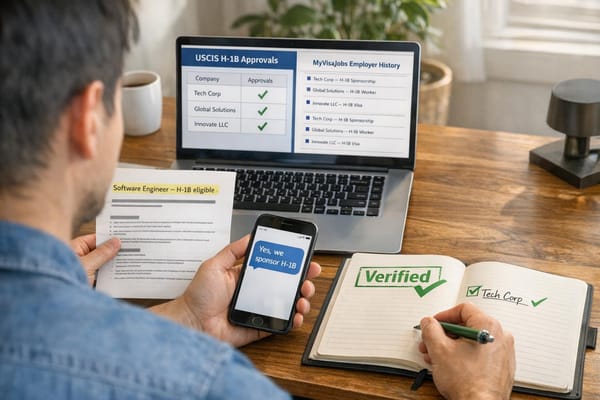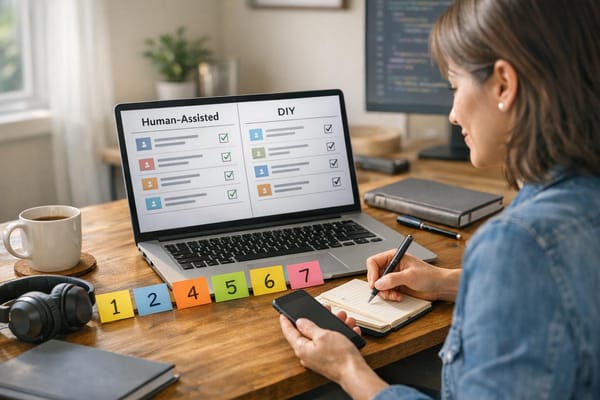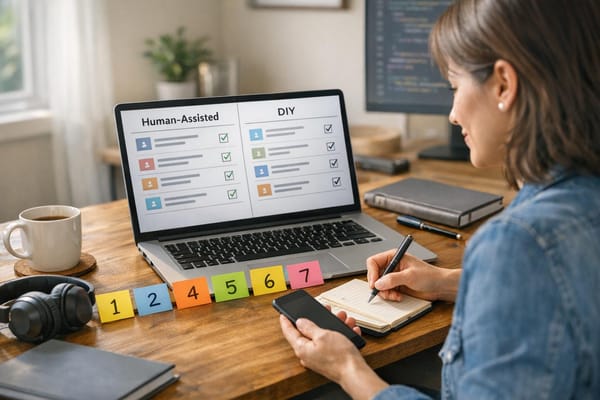Unlocking Success: The Power of Informational Interviews in Navigating Your Career Path

Have you ever felt like navigating your career path is akin to playing darts in the dark—aware of a target but uncertain of its exact location? Enter the informational interview, not just another corporate buzzword, but a guiding flashlight that illuminates the unclear paths in your professional journey.
An informational interview is essentially a conversation initiated with professionals in your field of interest. Unlike job interviews, the objective here isn't to secure a position but rather to gain insights into an industry or specific role.
These interviews offer the invaluable opportunity to pick the brains of individuals already where you aspire to be, providing a sneak peek into various roles and industries without committing fully. Let's delve into the intricacies of informational interviews, from identifying potential contacts to conducting them with finesse.
Identifying Potential Contacts for an Informational Interview:
Locating suitable contacts for an informational interview may seem daunting, but fear not. Begin with your existing network—friends, family, and colleagues. They might know someone in your desired field. Additionally, utilize LinkedIn to find professionals with roles similar to your aspirations. Attend industry events or join relevant professional groups to expand your network.
Requesting an Informational Interview:
To initiate an informational interview, reach out to your chosen professional via email or LinkedIn. Introduce yourself, explain your purpose, and make it clear that this is not a job request but a quest for advice. Be concise, respectful, and propose potential meeting times, emphasizing flexibility. Patience is key as people are busy; follow up if necessary.
Preparing for the Informational Interview:
Being ready for an informational interview involves more than just showing up. Research the person's background and company, using LinkedIn as a valuable resource. Develop thoughtful questions that delve into their career journey and industry insights. Remember, it's a learning opportunity, not a job interview.
Questions to Ask in Informational Interviews:
Crafting well-thought-out questions is essential for making the most of an informational interview. Key queries could include asking about their typical workday, necessary skills for success, their career journey, company culture, and advice for someone starting in the field.
Appropriate Attire for an Informational Interview:
Dressing appropriately communicates respect. Choose your outfit based on industry standards and the company culture. Researching the company's culture through reviews, social media, or contacts can provide insights into suitable attire.
Conducting the Informational Interview:
Treat the informational interview as a conversation, not an interrogation. Ask open-ended questions to encourage thorough responses, and practice active listening. Keep track of time, aiming for a 15-30 minute discussion unless otherwise suggested.
Navigating Difficult Topics in an Informational Interview:
Anticipate and prepare for challenging topics before the interview. Stay professional and gracefully steer the conversation away from uncomfortable areas, focusing on broader themes like company culture or industry trends.
Post-Interview Actions:
After the interview, send a thank-you note to express appreciation and maintain the momentum. Briefly mention specific points from the conversation, and keep building on the connection through LinkedIn and periodic updates on your progress.
Common Mistakes in Informational Interviews and How to Avoid Them:
Common mistakes include inadequate preparation, direct job requests, dominating the conversation, and forgetting to send a thank-you note. Avoid these pitfalls by thoroughly preparing, using the interview for information gathering, being respectful of the other person's time, and expressing gratitude promptly.
The Long-Term Benefits of Informational Interviews:
Informational interviews offer not only industry insights but also networking opportunities that can lead to career growth. Individuals who conduct these interviews are more likely to receive job offers, and establishing rapport with professionals can lead to mentorship and recommendations.
In conclusion, informational interviews are a game-changer in your career exploration journey. From identifying contacts to conducting yourself with professionalism, these interviews offer a plethora of benefits, ultimately contributing to your long-term career success.




